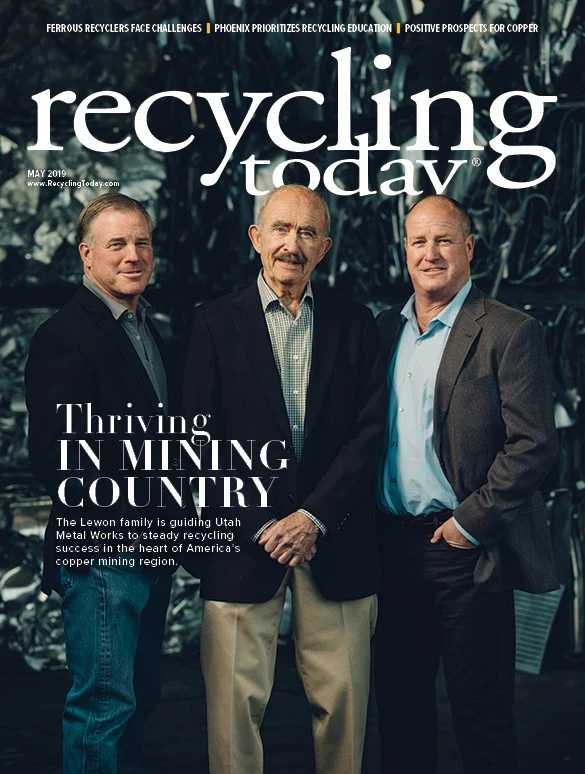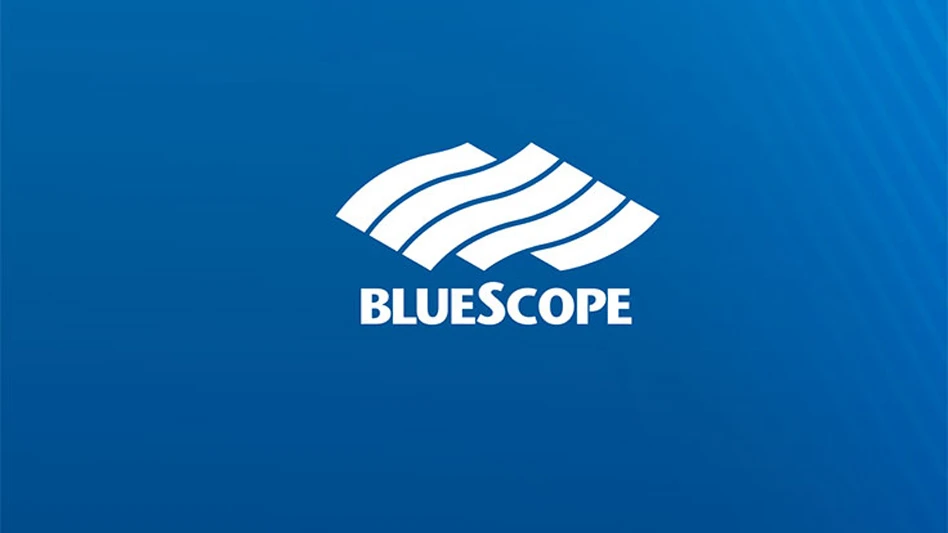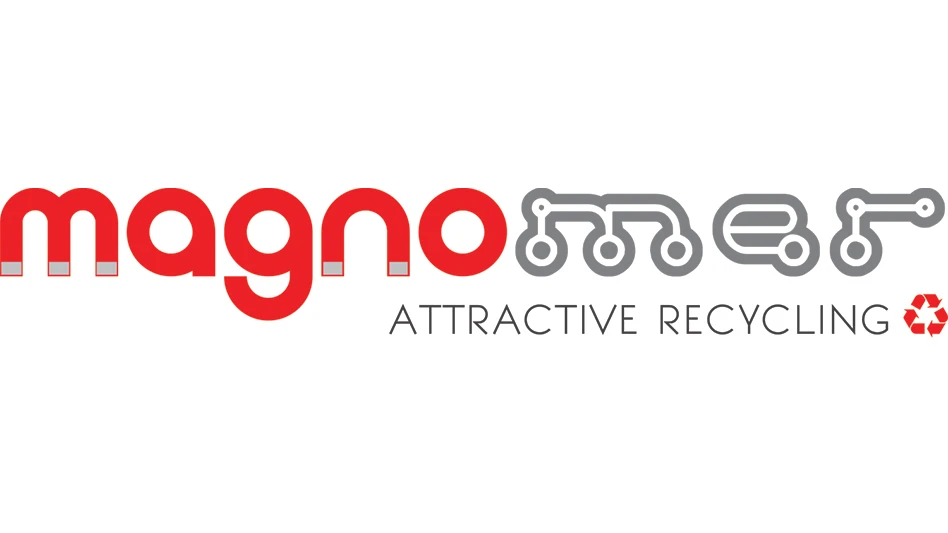
The city of Phoenix is striving to reach zero waste by 2050. Led by waste and recycling enthusiast Lucas Mariacher, the Zero Waste team is on a mission to get the city’s 1.6 million residents on board with the plan, but first they must educate people outside of the industry on what zero waste is.
Mariacher came on board as the recycling coordinator at the Phoenix Public Works Department in 2016, which was around the same time former Mayor Greg Stanton announced the city’s zero waste goal. Mariacher stirred things up in the department by recruiting a new team, which includes recent graduates from Arizona State University’s (ASU) School of Sustainability. He changed his title to zero waste coordinator, named his staff the Zero Waste team and decided they would create new programming, such as a lecture series, to reach more residents.

“When I came in, I said, ‘Let’s change our name. Let’s go on this campaign. Let’s start getting the message out’” about zero waste, says Mariacher, who worked as a part-time driver for a recycling company to help pay for his tuition while studying at ASU. He didn’t envision himself staying in the industry long-term, but “then over months and years of being in it, you see there’s clearly a problem here. People have no idea how to recycle,” he says.
Phoenix currently diverts about 34 percent of its waste from landfill, which is shy of the city’s 40 percent waste diversion by 2020 goal.
To keep moving toward the goal, Mariacher and his team are hands-on. When he’s not on the local news talking about zero waste and recycling, Mariacher and the Zero Waste team are engaging residents at community events, school presentations and weekly tours of the city’s North Gateway transfer station and material recovery facility (MRF).
The team’s efforts haven’t gone unnoticed. In 2018, the Zero Waste team received honorable mention for Best Recycling Public Education Program from the National Waste & Recycling Association (NWRA), Arlington, Virginia; but, more importantly, recycling is improving in Phoenix.
Team spirit
The Zero Waste team, made up of three zero waste specialists and two analysts, reaches about 20,000 people per year through “face-to-face” engagement by setting up booths at community events or hosting presentations and programs.
“Face-to-face is important,” Mariacher says. “That’s when you can really get into the why,” he adds.
Although its focus is educating residents, Mariacher says the team created a program that trains businesses on proper recycling and helps establish recycling systems. Through the Phoenix Green Business Leader program, the team also recognizes and certifies businesses for achieving different levels of sustainability.

The public works department is made up of several divisions, including diversion and disposal, MRFs and landfill and field operations. In his role, Mariacher works with these divisions to understand problems they’re facing and to create effective, targeted campaigns and programs.
Plastic bags were getting tangled in machines and slowing down operations at the city’s MRF, Mariacher says, so the team created a campaign around plastic film.
“When we start to create a marketing piece, I’ll ask someone that doesn’t work in this field, ‘Does this make sense to you?’” Mariacher says. “I remember going to a very nice lady that worked at our front desk and asking her what she’d think if I said, ‘Take your film plastics here.’ She thought I was talking about Polaroid film.”
Beyond confusing industry lingo, Mariacher says he thinks the issue is “people outside of our industry don’t see this as this complex issue of 35 people in a MRF trying to sort out the material. I don’t think they understand the impacts of putting contaminated materials in the bin. It falls on the city to get the education out.”
Phoenix’s Zero Waste team significantly cut down on curbside contamination by investing resources in a pilot curbside tagging program last year.
“The biggest thing we’re having challenges with is bagged recyclables,” says Mariacher, who learned about the problem while riding around with a truck driver who picks up the city’s curbside recycling. “Almost every other household had bagged recyclables. I was just shocked. This was our No. 1 contaminant, and it’s purely just a step they are doing wrong.”
“Over months and years of being in it, you see there’s clearly a problem here. People have no idea how to recycle.” – Lucas Mariacher, Phoenix Zero Waste Coordinator
Mariacher says his team was inspired to start a recycling cart tagging program by the success of Falls Church, Virginia-based The Recycling Partnership’s pilot curbside tagging program, which used tags to notify residents of recycling mistakes. Today, tagging programs are among the most effective tools in the industry to improve contamination at the curb, but they also are labor intensive, Mariacher says.
The team customized the program, creating its own tags with real images of contamination and incorporating a “Shine On” tag to reinforce positive behavior.
The pilot program was such a success that about 10 people now go out to check and tag bins daily around the city. “Essentially, the numbers flipped,” Mariacher says of the program’s results. “Around 70 percent of recyclers were receiving ‘Oops’ tags, and then by week six or seven about 70 percent were receiving ‘Shine On’ tags.”

Power of programming
When Mariacher came on board, the education and outreach program was already in place, but it wasn’t very effective. That’s why he wanted to put more of an emphasis on creating programming for residents.
In April, Mariacher and his team hosted the first of a free annual lecture series, PHX 2 Zero, at the Arizona Jewish Historical Society. The event featured keynote speaker Bea Johnson, author of Zero Waste Home: The Ultimate Guide to Simplifying Your Life by Reducing Your Waste, which has inspired thousands of people across the globe to adopt a zero waste lifestyle. The event attracted more than 100 residents.
Mariacher says his team has been successful because of the combination of industry veterans and new graduates from the ASU School of Sustainability. He has created an unofficial pipeline program at the university by recruiting several students to work with the Zero Waste team.
While educating residents is a big piece of the puzzle, it ultimately comes down to behavior change, which is why the Zero Waste team is rolling out a new program this fall. Through the new Zero Waste Ambassadors program, the Zero Waste team will train and certify “ambassadors” from schools and residential neighborhoods through workshops and a MRF tour. The volunteer ambassadors can then go out into the community and educate others about waste diversion and recycling. Mariacher envisions the ambassadors being an arm of the Zero Waste team, eventually organizing their own community presentations and helping with tabling events.
“It’s really to reach more people that may have not been interested in things we do,” Mariacher says. “A lot of times, you’re preaching to people and you’re in the recycling department. If we can get a neighbor to spread that message rather than us always doing it, I think sometimes that message is more effective.”

Explore the May 2019 Issue
Check out more from this issue and find your next story to read.
Latest from Recycling Today
- Haber raises $44M to expand to North America
- Canada Plastics Pact releases 2023-24 Impact Report
- Reconomy brands receive platinum ratings from EcoVadis
- Sortera Technologies ‘owning and operating’ aluminum sorting solutions
- IDTechEx sees electric-powered construction equipment growth
- Global steel output recedes in November
- Fitch Ratings sees reasons for steel optimism in 2025
- P+PB adds new board members





